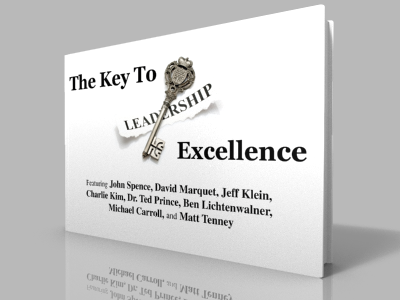A Different Type of SEO – Self-Effectiveness Optimization:
How mindfulness training improves our personal effectiveness.
Optimization seems to be one of the most common buzzwords “buzzing” around these days. I most often hear the word in the context of SEO, which is search engine optimization.
I wonder how many of us have a solid plan for optimizing our most important engines – our minds. Let’s explore this most important aspect of another type of SEO – “self-effectiveness optimization.”
I feel pretty confident that everyone reading this has a solid understanding of how to optimize ourselves physically. There is an abundance of information (perhaps too much) on how to eat well, sleep right, and exercise to ensure that we can optimize ourselves, physically.
But what do we do to optimize the most important tool we have – the mind?
Traditional schools of thought posit that we should get as much education as possible. However, there is a lot of evidence that shows an inverse correlation between higher levels of education and personal effectiveness. For instance, according the research of the Perth Leadership Institute, there is actually an inverse correlation between higher levels of education and profitable behaviors. And, thanks to the well-known research of Daniel Goleman and others, we now know that emotional intelligence is twice as important as IQ for high levels of personal and professional performance.
Although knowledge is definitely helpful, it seems that even more important is how well-trained our minds are. This is why so many top companies like Google, Intel, Raytheon, and General Mills are training their people in the practice of mindfulness. They know that mindfulness is an incredibly powerful tool for training the mind to be most effective. This is why I am also an advocate for incorporating mindfulness training into our personal development efforts.
Mindfulness practice can really be boiled down to two main elements: attention training and wisdom development.
The heart of the practice is training ourselves to become less distracted by thinking. We train our attention to be aware of our own thoughts and emotions (self-awareness), as well as the rest of the present-moment reality. This helps us remain more attentive to tasks we’re working on and, over time, actually makes the mind more efficient by reducing the amount of useless thinking that serves no purpose other than to sap our mental energy. (Although I’m sure that this doesn’t apply to anyone reading this. We never get caught up in conversations in our heads that are completely useless right?)
As we develop our ability to remain free from distracting thinking, awareness becomes much more powerful, allowing us to see subtle aspects of our world that we don’t normally pay much attention to – like how everything is constantly changing. We all know this intellectually, but most of us haven’t had deep personal insight into the universal truth of impermanence. By developing this wisdom, we find that we are much more effective in life because we deal with change more effectively, things don’t bother us so much, and we become much less attached to our own ego, which makes us much more effective when dealing with other people.
The heightened self-awareness and insight into impermanence that result from mindfulness practice make it a very powerful tool for developing the emotional intelligence skills that, as mentioned above, are more important than IQ for improving our effectiveness.
If you’re already utilizing mindfulness as part of your SEO (self effectiveness optimization) plan, I’d love to hear your thoughts on this.
If you’re new to mindfulness, please feel free to leave questions in the comment section.
Just CLICK HERE, and I’ll send you this eBook, featuring chapters from John Spence, Jeff Klein, Charlie Kim, Michael Carroll, Ted Prince, David Marquet, and Ben Lichtenwalner.









Being more conscious and attentive to what I’m doing and not allowing myself to get distracted by every incoming email, text, telephone ring, etc. has definitely allowed me to be more focused and productive. I hadn’t even realized how ineffective I was under the guise of “multitasking” until I took a step back and assessed what I was really “achieving”!
Thanks so much for sharing your insight Leah! There is research demonstrating that what you realized is actually quite common. Studies show pretty clearly that the more we multitask, the more unhappy we are and, ironically, the worse we become at multitasking.
This comment has been removed by the author.